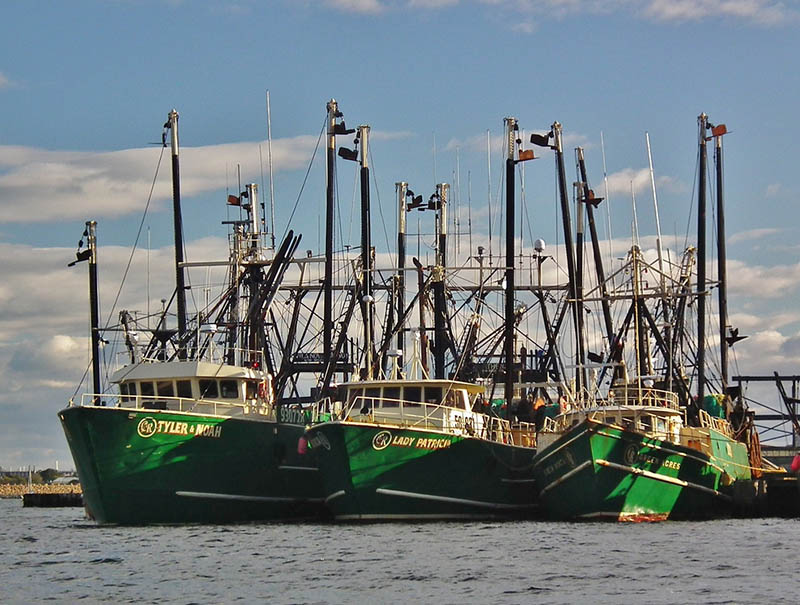New Bedford fishing mogul Carlos Rafael has now pleaded guilty to a suite of felonies including tax evasion, smuggling fish to shore and cash offshore, false federal reporting, and evading quotas. The Justice Department has worked up a plea deal including four years in prison and seizure of some boats and permits. That suffices for the cash-related crimes, and thanks goes to law enforcement for their long, hard work and the penalties imposed. But it’s not enough.

Carlos Rafael owns Carlos Seafood in New Bedford, Mass. Steve Kennedy photo.
Rafael has a multi-decadal history of lawbreaking. In 2016 the Boston Globe reported, “Rafael has a history of crime related to his business. He served a six-month prison term for tax evasion in the 1980s and was charged with price-fixing in 1994, though he was acquitted in that case, according to court records. He was also convicted of making false statements on landing slips for commercial fishing vessels in 2000 and was sentenced to probation, according to court records.”
That’s not the half of it. The National Maine Fisheries Service has record of 20 separate admitted violations over the last two decades involving Rafael’s vessels and corporations. They include sub-legal net mesh sizes, missing fishing day declarations and under-counting, quota violations, false reporting, and concealing illicit catch. The boats and scams varied but they all have one common thread: The name “Rafael” stamped on the corporate documentation.
It is no stretch to stipulate that this record, along with the recent case at hand, constitutes prima-facie evidence of repeated, willful, and egregious criminal activity on the part of Rafael. These violations caused unknown harm to fishery resources — by statute, property of the people of the United States — and to all the law-abiding fishermen who have suffered under increasingly stringent regulations (or been forced out of the business entirely). The question at hand is: How to protect the victims and environment alike from this serial offender?
Here’s the rest of the story: In addition to the 13 vessels and permits to be seized, Rafael has another eight vessels and 25 permits still enrolled in the groundfishery. The government has not proposed to restrict those vessels in any way. There are no known sanctions on the offending captains. No additional monitoring of those vessels is planned. In other words: It’s pretty much business as usual, and for Rafael while the loss of those 13 vessels is unfortunate, it’s just one of the costs of engaging in smuggling.
Carlos Rafael should be completely expelled from the groundfishery. Possession of a fishing permit conveys no permanent or vested ‘right’ to harvest fish; the government authorizes permits annually and can revoke them for cause. The National Marine Fisheries Service should shred every last one of Rafael’s groundfish permits. His permit to operate as a seafood dealer should be canceled. And as part of the plea agreement, he should be barred from serving as a corporate officer of any entity involved in the groundfishery.
Last, the fishing rights attached to the shredded permits should be distributed to the hundreds of law-abiding permit holders throughout New England who have suffered because of one serial offender. This is just compensation for enduring decades of selfish, lawless behavior and sends a clear message to other would-be criminals: Flout the law, and you, too, can expect to donate your fishing privileges to the rest of the fleet.
As Mother Jones magazine reported earlier this year: “I am a pirate," Rafael once told regulators. "It's your job to catch me." And so they did. Now, justice demands that the National Marine Fisheries Service ensures this pirate never sails his fleet again.
Editor’s note: The views and opinions expressed in this article are those of the author and do not necessarily reflect the official policy or position of National Fisherman or any other entity.







